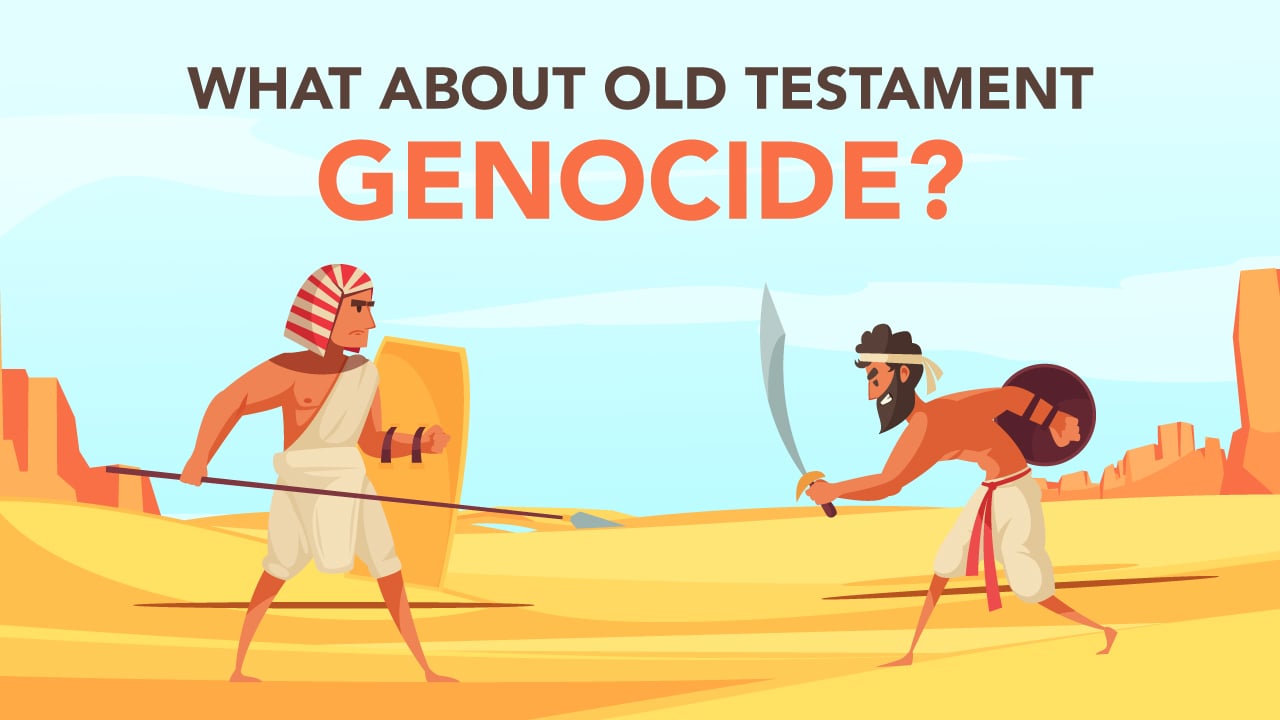3 min read
God Didn’t Punish Sodom and Gomorrah for Homosexuality
Joseph Backholm Nov 20, 2019 2:06:36 AM
You’re in a conversation about the Bible and homosexuality and someone says to you “God didn’t punish Sodom and Gomorrah for homosexuality, he punished them for inhospitality, promiscuity, and sexual violence.”
What would you say?
In the book of Genesis, God sent angels in the form of men to visit the town of Sodom in the home of a man named Lot. When the men in the town learned about the visitors, they descended on Lot’s house and attempted to rape the visitors. Soon after, Sodom was destroyed.
For millennia, this story has been understood as a story about God’s punishment of sin, including the sin of homosexuality. In fact, the word “Sodomy” comes from the town of Sodom. But some now argue that this story has been misunderstood. They claim that God’s punishment of Sodom had nothing to do with homosexuality. But was instead punishment for in hospitality or promiscuity. If you hear this argument here are a couple of things to remember.
1. The context of Genesis makes the meaning of the Sodom story clear.
2. Other scripture confirms the connection between Sodom and homosexuality.
You’re in a conversation about the Bible and homosexuality, and someone says to you, “God didn’t punish Sodom and Gomorrah for homosexuality. He punished them for inhospitality or promiscuity.” What would you say? In book of Genesis, God sent angels in the form of men to visit the town of Sodom and the home of a man named Lot. When the men in the town learned about the visitors, they descended on Lot’s house and attempted to rape the visitors. Soon after, Sodom was destroyed. For millennia, this story has been understood as a story about God’s punishment of sin, including the sin of homosexuality. In fact, the word “sodomy” comes from the town of Sodom. Some now argue that this story has been misunderstood. They claim that God’s punishment of Sodom had nothing to do with homosexuality, but was punishment for inhospitality or promiscuity. If you hear this argument, here are a couple things to remember. First, the context of Genesis makes the meaning of the Sodom story clear. In Genesis 19:5, we read that the men of Sodom said “Bring them out to us, that we may know them.” Here, the Hebrew word yada is translated “to know”. This has been understood to mean “to have sex”, but some now claim that this is a mistake. They suggest that “to know” has a platonic meaning. Here’s the problem with this argument. Just a few verses later, Lot uses the same word “yada” or “to know” when he says that his daughters “have never known a man.” This can’t possibly mean that Lot’s daughters hadn’t met a man before because the same chapter tells us that Lot’s daughters were engaged. It’s clear that the phrase “to know” is being used in a sexual sense to say that they were virgins. In light of how the word “yada” is used elsewhere in Genesis 19, it’s not reasonable to suggest that the men of Sodom were just looking to chat with the visitors. Their intentions were clear and God didn’t like it. Second. Other scripture confirms the connection between Sodom and homosexuality. Others claim that references to the story of Sodom in other parts of the Bible don’t mention homosexuality, suggesting that isn’t really part of the story. For evidence they cite the prophet Ezekiel who said the following when talking to Israel: “Now this was the sin of your sister Sodom: She and her daughters were arrogant, overfed and unconcerned; they did not help the poor and needy.” No mention of homosexuality. Does this mean that God was only angered by their lack of generosity? No. And here’s how we know. One verse later, Ezekiel says about Sodom that, “They were haughty and did an abomination before me.” The phrase “did an abomination” is a direct reference to Leviticus 20:13 where this exact phrase originated as part of a direct condemnations of homosexual behavior. Rather than distance the story of Sodom from homosexuality, Ezekiel actually makes a direct connection. Whether someone chooses to trust what the Bible says, on the issue of homosexuality, the biblical position is clear and consistent. So next time someone tells you that the story of Sodom and Gomorrah has nothing to do with homosexuality, remember these two things. The context of Genesis makes the meaning of the Sodom story clear. Other scripture confirms the connection between Sodom and homosexuality. If you care about scripture, everything points in the same direction.




